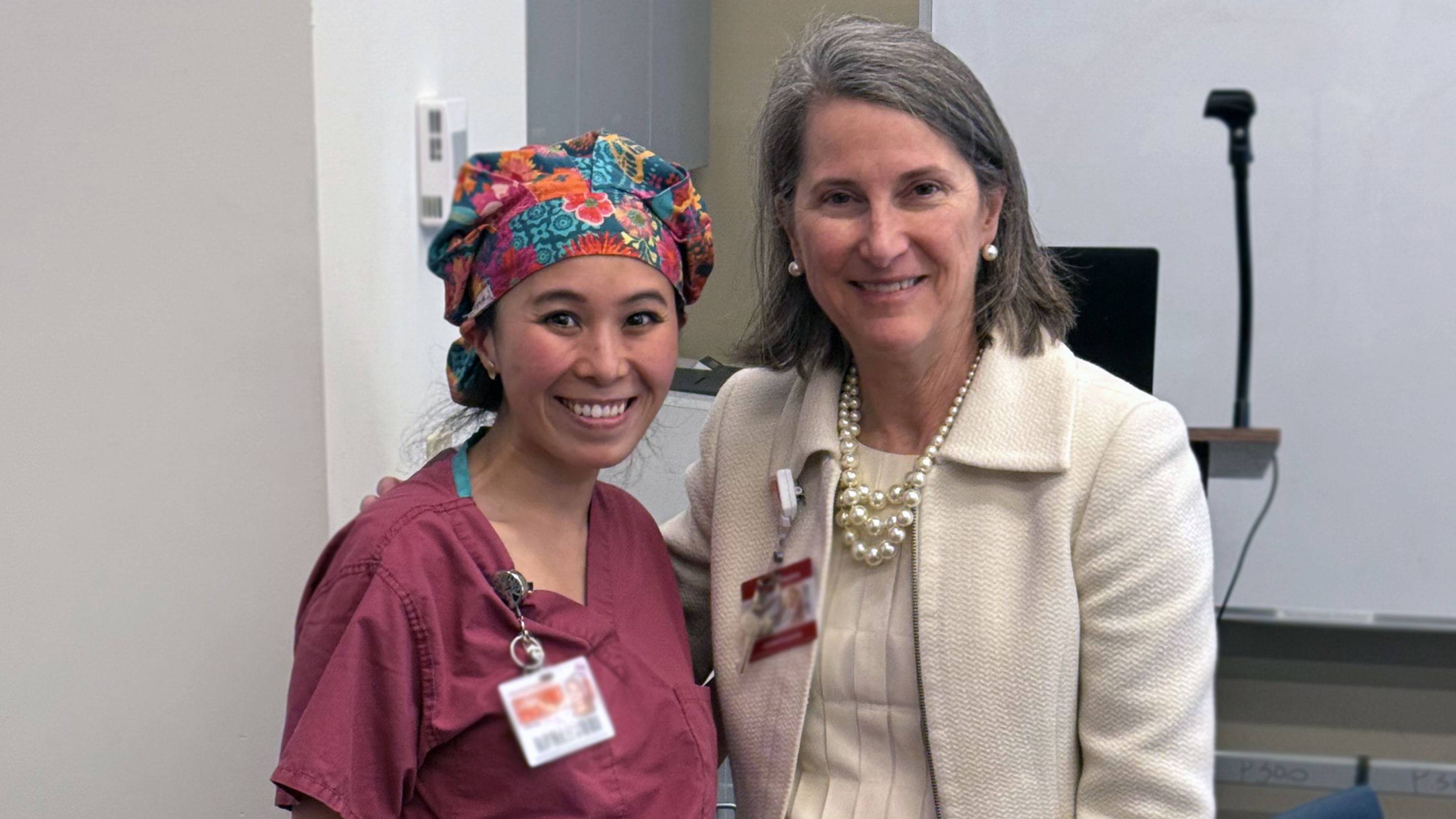
Thank you to our contributing writers Dr. Patricia Mack and Aaron Weinberg.
National Patient Safety Awareness Week is an opportunity to reflect on our shared commitment to improving patient outcomes and ensuring a safe environment for both patients and healthcare providers. This year, the Center for Patient Safety (CPS) chose the theme "Moving the Needle," emphasizing the shift from awareness to meaningful action in patient safety.
In the Department of Anesthesiology, this commitment was highlighted through a series of engaging events coordinated by the Patient Safety and Quality Improvement team. The week was capped off with the annual patient safety luncheon and patient safety awards ceremony, where the department celebrated the achievements of four outstanding clinicians, each nominated by their peers for their dedication to patient safety. Their work exemplifies how clinicians can drive real change, setting new standards for excellence in care.
During the luncheon, participants were encouraged to share their insights by posting safety concerns, helping us identify key areas for improvement. This open dialogue fosters a culture of continuous learning and proactive problem-solving, ensuring that every voice is heard in our pursuit of safer care.
Additionally, staff and clinicians were invited to make a commitment to patient safety, pledging specific actions they will take to enhance safety for both patients and care teams. Whether it’s improving communication, following best practices in infection prevention, or advocating for system-wide improvements, these commitments serve as tangible steps toward real change.
“Over the past year, we have also made significant strides in refining the adverse event reporting process within the Keepsafe system,” said Dr. Patricia Mack, a professor of clinical anesthesiology and vice chair for patient safety and quality improvement in the department. “We developed a specialized anesthesiology reporting form to better capture relevant events and improve data collection. Additionally, we have implemented a reporting dashboard to help identify trends in performance, providing valuable insights that support continuous improvement. Moving forward, we will collaborate with individual divisions to develop specialty-specific reports, ensuring that each person has the tools needed to enhance patient safety within their unique clinical environment.”
Moving forward, the department leadership will continue to turn awareness into action—driving innovation, improving processes, and reinforcing a culture of safety.
“Patient safety is not just a goal, it is an ongoing responsibility that requires vigilance, collaboration, and a shared commitment from every member of the healthcare team,” said Aaron Weinberg, the department’s quality and patient safety administrator.
Patient Safety Awareness Week is a national annual education and awareness campaign held in March to improve the safety of health care for patients and providers.

